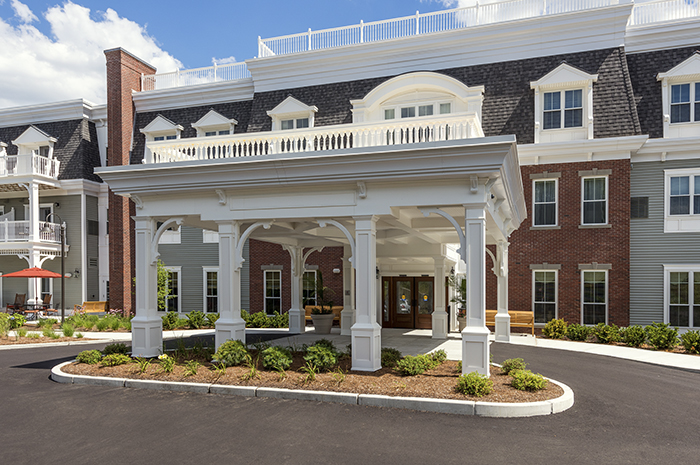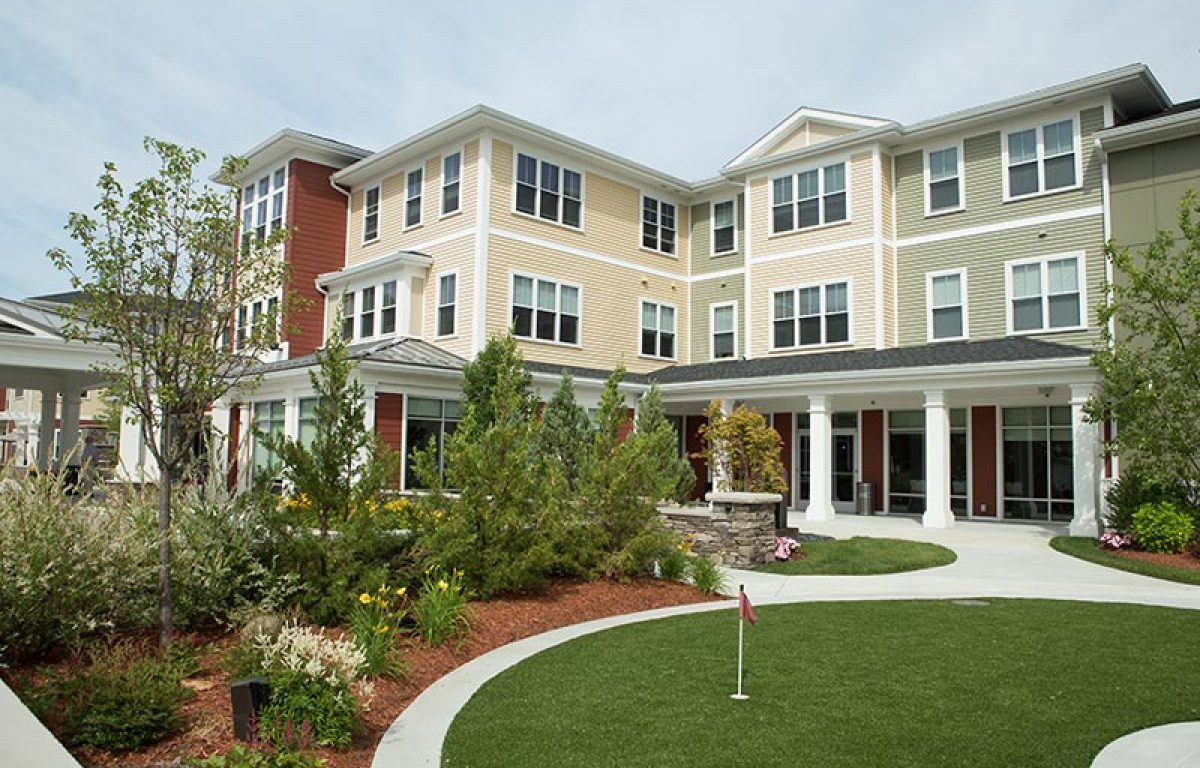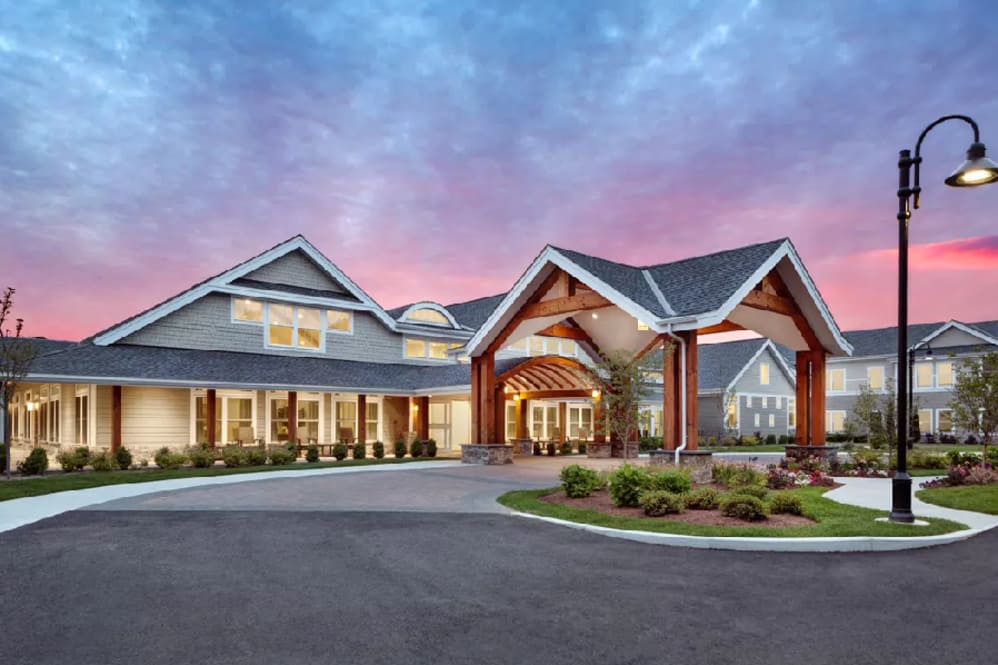
Assisted Living in Massachusetts
Costs and Local Resources
See how beautiful the Bay State can be when you explore assisted living services in Massachusetts. Steeped in history and myth, the Commonwealth of Massachusetts is an ideal locale to write the next chapter of your story. New England autumns are as idyllic as they say, perfect for the sunset years. Massachusetts experiences each of the four seasons, with cold, snowy winters and warm, humid summers. From cozy, small-town assisted living options to luxury, hotel-style senior living locations, there’s something for everyone exploring Massachusetts assisted living services.
Cost of assisted living in Massachusetts vs. nearby states

Cost of assisted living in a selection of Massachusetts cities
We noticed people seem to be searching for assisted living in these Massachusetts cities more frequently than others: Boston, Falmouth, Gardner, and Milford. We've provided their pricing here.

The cost of assisted living in Massachusetts
Seniorly 2021 data shows that the average cost of assisted living in Massachusetts is $5,421 per month. The national average monthly cost is $4,057, which puts Massachusetts significantly above that average. Keep in mind as you start your senior living search that some areas (particularly those where the cost of living is high) will be more expensive than others. Explore our assisted living listings to start comparing properties, or get in touch with one of our local advisors to get expert advice on what you can afford in the areas in which you’re interested.
Assisted living communities can provide the peace of mind that comes from not worrying about home maintenance, chores, or errands, as well as help with personal care like grooming, eating, and other activities of daily living seniors might have trouble with. However, if your loved one requires nursing care, or has diagnosed Alzheimer's or dementia that has progressed to a certain point, they might need a skilled nursing facility/home health care, or memory care community instead. These types of care providers (and for that matter, in-home care) might cost more in Massachusetts than assisted living facilities, but the important thing is that your loved one’s needs are cared for in order to provide them with the best quality of life.
If your loved one currently lives in a retirement community, ask whether it is a Continuing Care Retirement Community: these senior living properties are generally designed for residents to age in place. Seniors can get the different levels of care they need, from independent living to memory care, without having to move to a different community altogether.
Overall cost of living in Massachusetts
Massachusetts has one of the highest costs of living in the country. Behind Oregon on the West Coast and nearby New York, Massachusetts’s cost of living index is 131.6, where the US national average is 104.63. This is largely due to significantly higher housing costs than in the rest of the county.
Financial assistance for assisted living in Massachusetts
Medicaid options for Massachusetts seniors
According to benefits.gov, to be eligible for Massachusetts Medicaid, you must be a resident of the state of Massachusetts, a U.S. national, citizen, permanent resident, or legal alien, in need of health care/insurance assistance, whose financial situation would be characterized as low income or very low income. There is no income limit for individuals with disabilities who may have to pay a premium and a one-time deductible to qualify.
Massachusetts's Medicaid health care program is called MassHealth. This State and Federally funded program provides health care benefits to certain low- and medium-income people living in Massachusetts. These benefits are offered directly or by paying part or all of health-insurance premiums. MassHealth offers different types of coverage based on age, whether the enrollee is a parent, pregnant, disabled, HIV positive, or have breast or cervical cancer, and depending on size of employer.
MassHealth offers six different tiers of coverage for seniors and those who require long-term care benefits. There is also a Medicare-Medicaid hybrid program, Senior Care Options (SCO), which covers all of the services normally paid for through Medicare and MassHealth.
Non-Medicaid State assistance programs
There are a few non-Medicaid assistance programs in Massachusetts, administered by the Executive Office of Elder Affairs.These include housing programs, nutrition programs, and legal assistance for seniors. For more ways to find assisted living help, check the “Free assisted living resources in Massachusetts” section below.
More ways to finance assisted living in Massachusetts
There are several options available to finance assisted living for yourself or a loved one. Long-term care can be financed several ways:
- Life insurance - Some life insurance policies have a provision for long-term care benefits.
- Long-term care insurance - This type of insurance is intended to cover long-term health care needs by covering costs for assisted living or long-term care communities.
- Pensions, 401K, and IRA - If you have a pension, 401k or an IRA to fall back upon this would be a great benefit in paying for assisted living costs.
- Real Estate - Having a home is a great source of income. When it is time to move into assisted living the sale proceeds from your home can cover the costs.
- Veteran’s benefits - While the VA will not directly cover the costs of assisted living, you can obtain help from the VA under the Veterans Aid & Attendance benefits. The Aid & Attendance benefits helps eligible veterans and their surviving spouses to pay for assistance for assistance of daily living (ADLs) activities. Aid & Attendance benefits are often referred to by other names such as “improved pension,” “VA assisted living benefit,” or “veterans elder care benefits.”
Free assisted living resources in Massachusetts
Massachusetts residents can explore state resources that can help answer your questions about eligibility for certain types of benefits and how they might apply to assisted living.
Find your local Area Agency on Aging There are multiple agencies per state, enter your ZIP code or city to find the one closest to you.
The Massachusetts Department of Veterans’ Services may be able to help you determine if your loved one is eligible for VA benefits.
Find Massachusetts Social Security offices where you can understand your benefits and get answers to your questions about claims.


